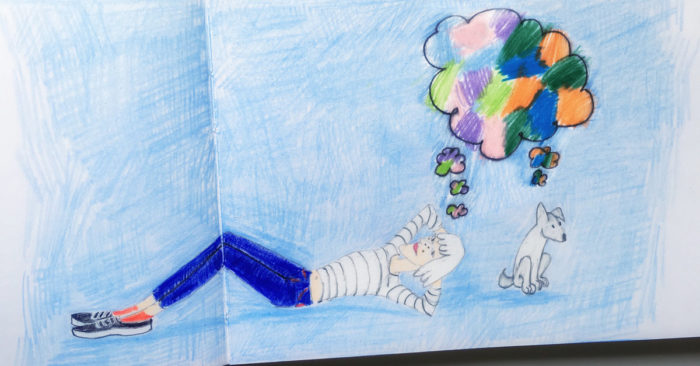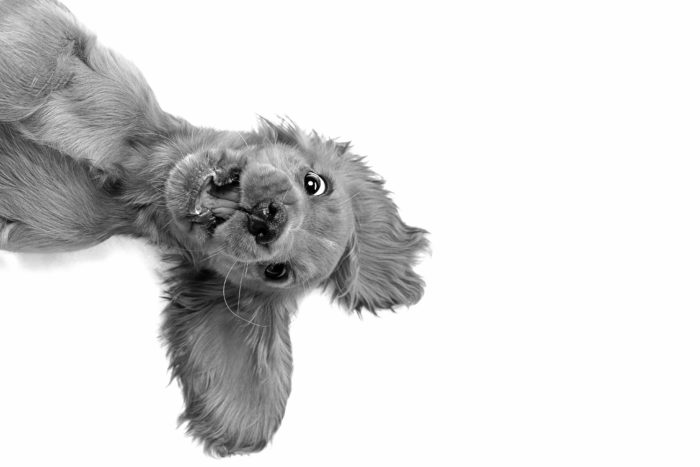
Congratulations on your new puppy! This little critter is soaking up his environment and everything you have on offer to teach.
Are you set with a good game plan for these coming early weeks? Have you done your homework? Are you prepared with your lessons and a good puppy coach? Do you have all the equipment and supplies you are going to need?
This new addition comes with a whole set of his own priorities and interests. Are you ready to provide this pup with all that he needs to live a well-adjusted, healthy life?
How do you wade through the piles of information available and all the well-meaning advice from everyone you know and some you don’t? When it comes to what you should be doing with your new puppy it can seem like everyone has an opinion.
Let’s break it down to some prioritizing based on a puppy’s development. This helps put things in perspective and can get you rolling with what is crucial right now.
The first 14 weeks
What happens or does not happen during the first 14 weeks of a dog’s life will have a profound impact on his entire life. What you do with your puppy during this time will determine his ability to navigate a life tightly knit with us humans and our weird and wacky ways.
A dog might be called man’s best friend but a dog’s wants and needs frequently cause havoc in households where they aren’t understood or provided for!
The first 3 1/2 months of a pup’s life are when a robust socialization and prevention strategy must be planned and executed. After this time has passed, you are playing catch up. This is not to say that great work cannot be done with a dog after this time, but it is to say that a critical period of development has passed and you will never get it back. You cannot afford to miss out on it, your dog certainly cannot!
A dog’s ability to easily acclimate with his environment stops at about 14 weeks. If he perceives things as threatening, because of a lack of early exposure, the fight or flight response kicks in. Any way you look at it there is stress involved, stress can lead to illness too.
The pup is most malleable now for us to affect his ability to peacefully live closely with us humans. He will need to get used to being alone sometimes. He will need to be able to go to the vet and be handled and to get along and be comfortable with us around his food and toys. If he doesn’t learn how to do this now we may have big problems later on with guarding and biting and stress when left alone at home.
Top priorities
With our understanding of this critical period of puppy development we know that socialization, which for our purposes means a positive encounter and or exposure to a wide variety of people, other animals, sounds, surfaces and situations and; prevention, a game plan that includes specific exercises to help prevent known, predictable, dog behaviors from becoming problematic are our top priorities. This is some seriously time sensitive business that needs your immediate attention. No waiting until the puppy is 4 months old. By then the ship has sailed!
We recommend that you ask anyone who you are potentially getting a puppy from what type of early work they will be doing with the puppy before you bring him home? If you are bringing a new pup home between 8 and 10 weeks that leaves a whole lot of precious early development days in the hands of the pup’s birthplace folks.
What are they doing to help prepare this puppy for life? If your new puppy has had early socialization and preventative work started at his birthplace he now has a sizable advantage over a puppy that has not. Now here we are and you are bringing your pup home at maybe 8 to 10 weeks of age. That only leaves you 4 to 6 weeks to get this all-important education in. It is show time!
Socialization
Print out a copy of the Ultimate Puppy Social Schedule and get to it! Get out and introduce the pup to as many new things as you can. Each new person that your puppy meets should be giving him a tiny, tasty treat. You can drive, take a boat, take the bus or carry your puppy. Take treats and water and toys. Keep the outings to a reasonable length of time. Short fun trips are best. It is not enough to simply go around the block. You have got to get out and go looking for novel stimuli.
Other dogs
Please avoid dog parks and other heavily dog-populated spots. Friendly, healthy, well socialized dogs that you know are fine for your puppy to meet and perhaps play with. Puppy socialization playgroups are the best place for your new pup to have playtime with other pups. These play times are short and monitored, the area is clean and safe and you will learn lots about dog play and body posture. If you are lucky you will work on some recall out of dog play too.
Prevention
Simple, quick, fun run-throughs that help prevent serious problem behaviors, what’s not to love!
These exercises range from basic handling of the puppy using treats, to teaching the pup to easily hop off the couch or move away from the front door or kitchen counter. They also include teaching the pup that there is no reason to stress over you leaving the house, it is just part of the flow of the day. You will also teach your puppy that he never needs to guard his precious resources like the bowl or toy or bone, if you do take it, it will always comes back better!
When a dog guards what he deems important or is not comfortable at the vets or growls at you because you ask him to move over on the couch he is not being bad or unreasonable in his dog mind, these are predictable dog behaviors. Certainly this does not make for a peaceful existence with his humans and it could lead to rehoming or worse euthanasia. This is why preventative exercises are essential with a puppy. Simple yet potentially life saving.
Getting it done!
So now you know! Socialization and prevention are your top priorities with your new puppy. This is because they are very time sensitive and will make all the difference in the quality of life your puppy will have. Puppy socialization classes are readily available and are the absolute best way to learn all about these important lessons. Puppy socialization classes are made available for pups that are under the age 16 weeks. We hope this helps you, whether in preparation for a new pup or in the early weeks of bringing a new puppy home. Enjoy this early time with your new pup and teach him everything he needs to be able to enjoy his life with you.

